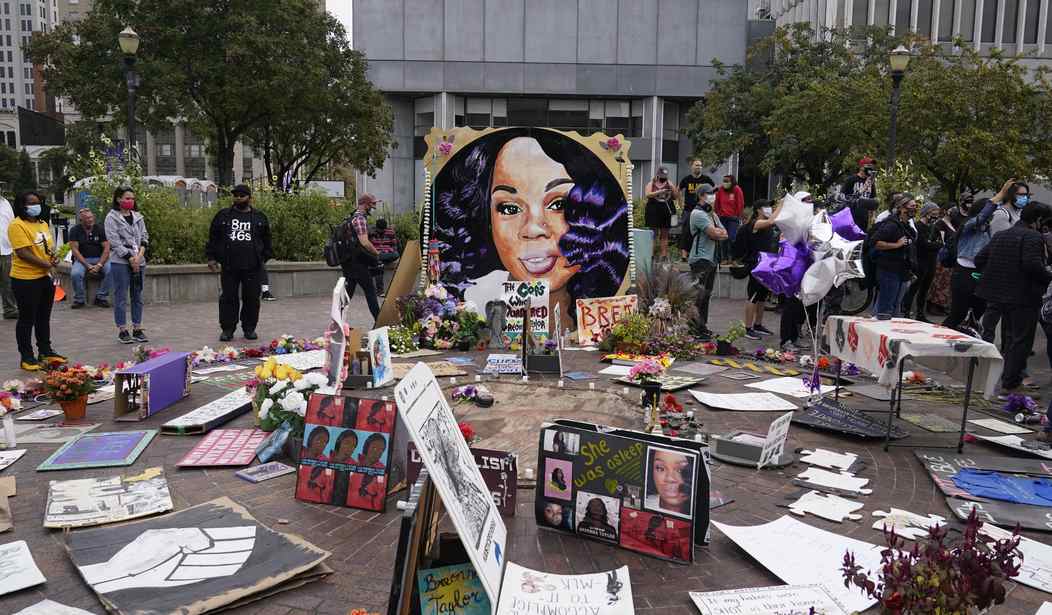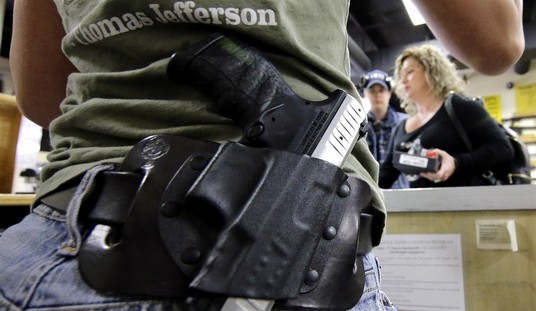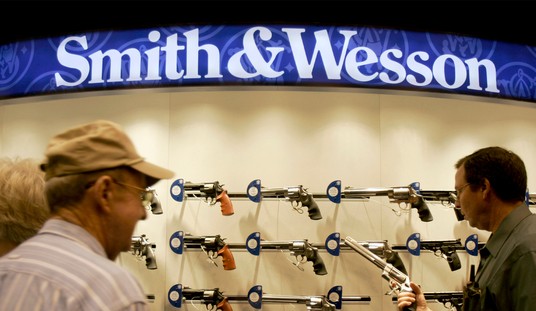A bipartisan bill introduced by Republican Sen. Rand Paul and his Democratic colleague Corey Booker called the Justice for Breonna Taylor Act aims to prevent senseless deaths like Taylor's by prohibiting federal law enforcement and agencies that receive federal dollars from using "no-knock" raids. Instead, police would have to provide "notice of his or her authority and purpose" before executing a search warrant.
George Washington University law professor Cynthia Lee isn't a fan of the bill, and she believes there are two reasons why similar efforts enacted at the state and local level won't make much of a difference. First, she says that there's just not much difference between a "no-knock" raid and a "knock-and-announce" search warrant execution. Citing a 2003 unanimous Supreme Court ruling, Lee says that waiting for as little as 15 seconds satisfies the knock-notice rule, "because prudent drug dealers will often keep their stash of drugs near a toilet so they can dispose of evidence quickly."
The second issue that Lee raises is the fact that there are plenty of legal gun owners who police might encounter while executing a warrant.
Even if police do knock and announce prior to entry, the homeowner may not hear the announcement — as may have occurred in the Taylor case — or the homeowner may think the people at the door are would-be robbers pretending to be police officers. If that homeowner comes to the door with a gun, the officers will think he or she poses an imminent deadly threat. And if, as occurred in the Taylor case, the homeowner shoots at the officers, those officers will likely shoot back to protect themselves.
Lee brings up a couple of potential improvements to Paul and Booker's bill including limiting the use of nighttime raids and requiring officers executing a warrant to be in uniform instead of in plain clothes. I actually agree with her suggestions, but she loses me when she sums up her rationale for believing the bill is ultimately unfixable.
The “Justice for Breonna Taylor Act” makes an important bipartisan statement that we need to do more to reduce the loss of human life when police execute warrants. It does not resolve the problem of the homeowner who grabs a firearm when police are banging on their front door. Given that the Supreme Court has ruled that individuals have a Second Amendment right to keep and bear arms in the home for self-protection, perhaps no legislation can resolve that problem.
Oh, so the only way to stop similar botched raids like the one that led to Breona Taylor's death is to make it illegal for anyone but police to possess a gun? Why hasn't anyone else thought of this before?
And why stop there? Imagine how much easier police would have it if they didn't have to worry about that pesky Fourth Amendment. I'm sure prosecutors would love it if the Sixth Amendment disappeared tomorrow and they didn't have to guarantee defendants a speedy trial in front of a jury of their peers.
Our rights exist, not to protect the government from the people, but to protect the people from the government. The preamble to the Bill of Rights makes that perfectly clear.
THE Conventions of a number of the States, having at the time of their adopting the Constitution, expressed a desire, in order to prevent misconstruction or abuse of its powers, that further declaratory and restrictive clauses should be added: And as extending the ground of public confidence in the Government, will best ensure the beneficent ends of its institution.
In order to prevent the government abusing its powers we added more restrictive clauses to the Constitution. Those clauses didn't restrict the People. They restrict the government's authority.. including negating the government's ability to infringe on our right to keep and bear arms.
Lee's infantile take on the Supreme Court and the Second Amendment ignores the fact that there has been a national tradition of gun ownership in this country that long predates the Founding and has remained ever-present throughout our nearly 250 years. The Supreme Court didn't establish a right to keep and bear arms. It recognized that right... unlike the local government in Washington, D.C.
In fact, in 1998 the Washington Post reported that the District, which had supposedly been handgun-free for more than 20 years, had more officer-involved shootings per capita than any other major city in the country.
Washington's officers fire their weapons at more than double the rate of police in New York, Los Angeles, Chicago or Miami. Deaths and injuries in D.C. police shooting cases have resulted in nearly $8 million in court settlements and judgments against the District in the last six months alone.
"We shoot too often, and we shoot too much when we do shoot," said Executive Assistant Chief of Police Terrance W. Gainer, who became the department's second in command in May.
The shootings involve a small proportion of the District's 3,550 officers. But the details of individual cases can be chilling even to police veterans: An off-duty police officer out walking his dog in August 1995 fired 11 times while trying to stop an unarmed motorist who had hit a utility pole and left the scene of the accident. An off-duty police officer fishing in May 1995 shot an unarmed man three times after arguing with him on the banks of Rock Creek. In August, an officer ended a police chase of an irrational truck driver who had rammed several cars by firing 38 times into the truck's cab, killing the unarmed driver.
Now, none of those incidents involved executions of search warrants, but Lee's entire point was that by disarming the public the police would have no reason to shoot, right? Well, D.C. during its handgun ban gives us a pretty good look at how her theory would play out in the real world, and I feel comfortable declaring that her hypothesis doesn't hold up. There were a ton of officer-involved shootings, but D.C. was also one of the most dangerous cities in the country. There were plenty of criminals invading homes and robbing residents while willfully violating the District's handgun ban back then. Why would we think it would be any different if D.C. (or the entire U.S.) banned the possession of firearms today?
Lee thinks the problem is "the homeowner who grabs a firearm when police are banging on their front door," so the solution must be to prevent that homeowner from grabbing that gun, even if that means completely upending the Constitution and turning tens of millions of gun owners into criminals. We already know that wouldn't work to reduce officer-involved shootings, so how about we focus on the actions of law enforcement instead? Like I said, a couple of her suggested amendments to the legislation are actually pretty good ideas. Her suggestion about the Second Amendment, on the other hand, is repugnant to both common sense and the Constitution.









